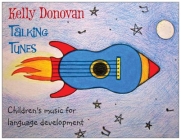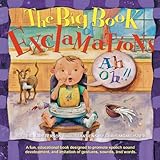I don’t know about you, but I have about a million and eight memories on my childhood swingset. Juicy, sticky twin-pops running orange and cheery and grape flavored sugar water down my wrists and puddling in that little space on the other side of my elbow. Of course there was the putting the damn thing together, a project in which I heard my dad curse for the first time, the metal parts lined up a jumble that no man could disentangle.
“Don’t ever say that word,” he cautioned.
“Oh? Okay.” I didn’t even know what gosh-dang-it, or rumpy-pumpy-poo-poo-head meant, but it didn’t sound good. Note to self: don’t put together a swing set lest you’ll spew out words that make no sense.
I recall swinging back and forth on the double-sided glider thing-y and feeling like the whole swing set would pull right out of the ground and topple over because we had two kids and a fat kid on one side and just a skinny pole-like kid on the other. Balance. All things in balance.
Skipping rungs across the monkey bars did not yield me a monkey, but a cripple. Yes, I twisted down, slapped my forearm on the base of the swing set and–bam–broke my arm. These were the days of heavy plaster casts, mind you and it was the summer I was five. No more swimming or sprinkers for me, and certainly not monkey bars. And when the cast came off, my arm was atrophied, extra-white and smelly. Yes, a lovely dead smell wafted from my monkey arm.
But I got some cool signatures and drawings on that cast, most of them from my parents and Cabbage Patch dolls.
When I was little–really little–I taught myself the ABCs while pumping my little cable-knit knee-highs up and down; it was then that I learned lmnop was really one word, one really long and silly word.
Creating a water slide using a hose at the top of the metal and allowing it to rest at the top, the water pouring from the hose down the side of the slide and into the baby pool at the bottom: dumb. The rungs get wet, slick feet do not grip, wedgies ensue. And the ride down: nothing like it was at Wet-Willies.
But here’s the thing: there are a lot of lessons to be learned on the swing set:
- Life is all about balance
- And sweet things. Or at least looking for the sweetness as it drips from your blood, sweat, and tears (or, your twinpop)
- Bad words are bad. They are a disturbing noise to hear from your father’s lips and they are even more disgusting from a child’s.
- Water makes life delicate. Use with caution.
- Don’t show off, lest you break a bone and get a smelly arm. And who wants that?!
- The alphabet is only a series of 26 letters which allows human beings with a properly functioning prefrontal cortex to create an infinite number of words and phrases, stories and songs, and a fantastically satisfying way to express ourselves to the world. And that may be the best lesson of the swing set yet.
That’s it…class dismissed!
[This post inspired by a passage in THE FAULT IN OUR STARS by John Green (2012). See page 124 http://en.wikipedia.org/wiki/The_Fault_in_Our_Stars, swing set image retrieved from www.paradisoagencies.com on 5.27.14]




 observe a quiet playground (when children are present), you probably won’t here a quiet swimming pool packed with kiddos. Kate loved the water and the sounds/words/phrases/word play generated in water play was priceless.
observe a quiet playground (when children are present), you probably won’t here a quiet swimming pool packed with kiddos. Kate loved the water and the sounds/words/phrases/word play generated in water play was priceless.






 Drawing held next Wednesday, May 21st by 5pm CST. You will be contacted via email if you are the winner; kindly check junk/spam folders and respond promptly with a mailing address.
Drawing held next Wednesday, May 21st by 5pm CST. You will be contacted via email if you are the winner; kindly check junk/spam folders and respond promptly with a mailing address.



 tremendous communication growth. She has improved by leaps and bounds to say the least and has far exceeded my expectations. When first meeting Leah, it was clear that she was bright and had a lot to say, yet, she was sooooo quiet! She was in her first year of preschool, very hesitant to speak, and much too aware that others could not understand her. You could see the disappointment in her face when her listener did not understand, as if she wanted to say “That’s not what I said; I wish you would just understand me!!!” Her communication difficulties were impacting her social skills and confidence. It was heartbreaking, though an awesome challenge for an SLP like myself!
tremendous communication growth. She has improved by leaps and bounds to say the least and has far exceeded my expectations. When first meeting Leah, it was clear that she was bright and had a lot to say, yet, she was sooooo quiet! She was in her first year of preschool, very hesitant to speak, and much too aware that others could not understand her. You could see the disappointment in her face when her listener did not understand, as if she wanted to say “That’s not what I said; I wish you would just understand me!!!” Her communication difficulties were impacting her social skills and confidence. It was heartbreaking, though an awesome challenge for an SLP like myself! [image above retrieved from
[image above retrieved from 


 and a BS degree in finance from the University of Utah. His career spans 34 years in banking, project finance, investment banking, and more recently as a Chief Financial Officer. He has been actively involved in community and church service, including lay youth and adult ministry, for over 38 years. His first book, Life on the Narrow Path: A Mountain Biker’s Guide to Spiritual Growth in Troubled Times was released nationally in 2011. His works A Piece of Silver: A Story of Christ (2012) and the Giants in the Land (2012 & 2013) Young Adult Fiction trilogy Books One and Two have been recognized with several international awards including Mom’s Choice Awards Gold Medals as the top books in the world in their categories. Learn more about Clark at his websites:
and a BS degree in finance from the University of Utah. His career spans 34 years in banking, project finance, investment banking, and more recently as a Chief Financial Officer. He has been actively involved in community and church service, including lay youth and adult ministry, for over 38 years. His first book, Life on the Narrow Path: A Mountain Biker’s Guide to Spiritual Growth in Troubled Times was released nationally in 2011. His works A Piece of Silver: A Story of Christ (2012) and the Giants in the Land (2012 & 2013) Young Adult Fiction trilogy Books One and Two have been recognized with several international awards including Mom’s Choice Awards Gold Medals as the top books in the world in their categories. Learn more about Clark at his websites: